Is Netflix your go-to nighttime routine before sleeping? Well, it’s about time you changed that. Scientists have suggested that you should stay away from screens for at least an hour before sleeping. This is due to the blue light coming out of your screen, which is potentially the reason for your low quality of sleep. In this blog, we'll delve into the implications of blue light on your sleep cycle and explore some effective ways to tackle the issues caused by it.
The Sleep Cycle
Ever wondered why we all sleep at night and wake up in the morning? It’s because of the sleep-wake cycle. The whole cycle is controlled by a set of hormones, and the most crucial one is melatonin. It is a hormone that induces sleep.
When you wake up, melatonin levels are low and cortisol (stress hormone) levels rise. Cortisol keeps you awake, alert, and vigilant of your surroundings. When the sun starts to set, your eyes send a signal to your brain that it’s getting dark. This triggers the hypothalamus to release melatonin. After a few hours, when there’s enough melatonin in the body, you’ll start feeling tired and eventually fall asleep.
When your sleep-wake cycle gets messed up, it causes sleep deprivation and may eventually lead to Delayed sleep-wake phase disorder. It is a condition where you are not able to sleep at the desired bedtime and thus face trouble waking up. Poor sleep quality or a shorter sleep duration can make you lethargic throughout the day, cause more accidents due to a lack of alertness, and also affect your cognitive abilities. While it’s easy to calculate sleep duration, but what about sleep quality?
Here are some indicators of poor sleep quality:
- Feeling tired constantly
- Yawning frequently
- You tend to doze off when you’re not actively doing something.
- Not feeling fresh and energized after walking up
- Lack of concentration
- Irritability or mood swings
What is Blue Light?
Blue light is a part of the spectrum of light that is visible to human eyes. It has a smaller wavelength and high energy. It sits right above the harmful UV rays in the electromagnetic spectrum. Well, that’s the technical part of it.
We often hear the term blue ray used for the light that is emitted from computer screens, mobile screens, etc. If you think that is the only blue light that your eye has been subjected to, then you are far from the truth. Blue light is a natural light that is also emitted by the sun. It is also emitted by the LED lights in your house.
The Dark Side of Blue Light
As mentioned above, blue light is present around you all the time, but only during the daytime. As the sun sets, the blue light is reduced, and you start seeing more of the red (high-wavelength) light, which eventually gets darker.
Blue light is beneficial during the daytime because it improves your alertness and cognition. It keeps your mind awake. Our body is programmed to induce sleep in the absence of blue light. Therefore, if we use our phones before sleeping, the emitted blue light will compel us to stay awake.
Here’s what happens inside your brain: Melatonin secretion is triggered by the cues sent by the eyes. If your eyes are telling the brain that there's light outside, the brain won’t initiate melatonin secretion. thus delaying your sleep time.
A disturbed sleep-wake cycle can cause health consequences like an elevated risk of diabetes, obesity, cardiovascular disease, depression, and high BP. Moreover, if your sleep deprivation evolves into circadian rhythm disorders, it can lead to unfortunate accidents & mistakes at the workplace caused by a lack of attention.
Scientifically Proven Methods to Improve Sleep Quality
Natural sleeping supplements :
Melatonin supplements are a great option for insomnia relief and other sleep disorders. Unlike sleeping tablets, they do not interfere with your nervous system to make you sleep. Sleeping pills slow down your nervous system by blocking certain receptors in the brain. Somewhat similar to a forced shutdown of a computer. Melatonin for sleep is a bit different. As we discussed earlier, blue light interrupts the natural production of melatonin. You need enough melatonin for your brain to realize that it’s time to sleep. By taking supplements, you simply fill the gap created by insufficient melatonin secretion.
Are melatonin supplements sedatives? No; instead, they work naturally with your body. Hence, it is recommended that you take sleeping supplements with melatonin at least an hour before you go to sleep.
20-20-20 Rule:
It is a simple rule that ophthalmologists often recommend to ease eye strain. But this rule can also be used to prevent continuous exposure to blue light. All you have to do is, after every 20 minutes of being in front of a screen, look at an object 20 feet away for 20 seconds. By doing so, you can ease eye strain caused by prolonged screen time and also improve your sleep quality.
Lifestyle changes:
Here are a few things that you can change about your daily life to help you sleep better.
- Have a fixed routine. Sleep and wake up at the same time, even on weekends, to make sure your sleep cycle is running smoothly.
- Your brain is programmed to be alert and active during the day. So avoid procrastination and get your things done before bed.
- Change your diet. Improved sleep quality has been correlated with high-carbohydrate diets and foods rich in tryptophan, melatonin, and phytonutrients.
- Being physically active during the day can help you rest well at night. So hit the gym or go for a run every day for better sleep.
- It is not just your mobile and TV, but also the LED lights in your room that emit blue rays. If you can change your bedroom’s lighting, switch to amber lighting for better sleep.
- Adjust the temperature in your bedroom according to your liking. Find what feels comfortable.
- Manage your anxiety
If you often find yourself anxious during the night, take measures to ease your anxiety. For some people, meditation works, while for others, soothing deep sleep music works. You could even try some scented candles.
Wrapping Up
There are several other factors that affect your sleep, for example, your age, the dinner you had, anxiety, and special health conditions like insomnia. Blue light exposure is a factor that is often missed by us and is also hard to control. If you are experiencing lazy mornings and a lack of energy throughout the day, you should really try keeping your phone away before you go to sleep, after all, a good morning needs a good night's sleep.
References:
https://www.health.harvard.edu/staying-healthy/blue-light-has-a-dark-side
https://www.ncbi.nlm.nih.gov/pmc/articles/PMC7230229/
https://www.ncbi.nlm.nih.gov/books/NBK19961/#:~:text=The%20cumulative%20long%2Dter
m%20effects,%2C%20heart%20attack%2C%20and%20stroke.
https://stanfordhealthcare.org/medical-conditions/sleep/delayed-sleep-phase-syndrome.html












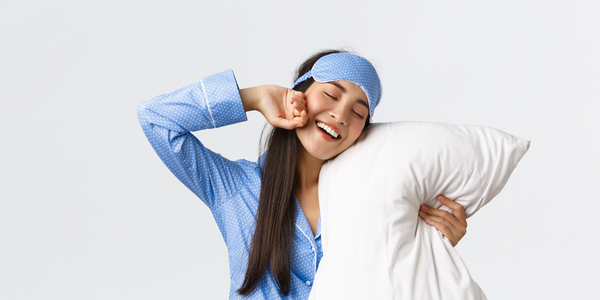
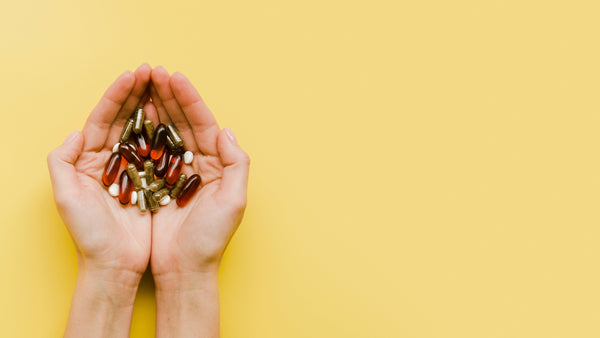
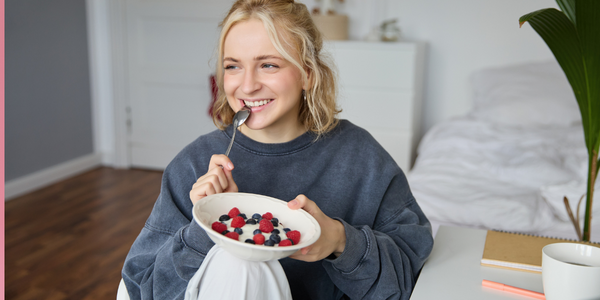
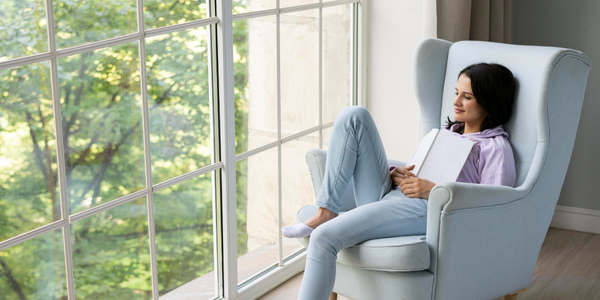

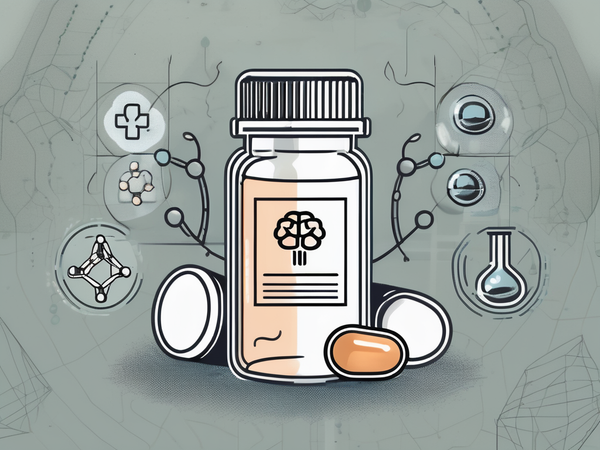
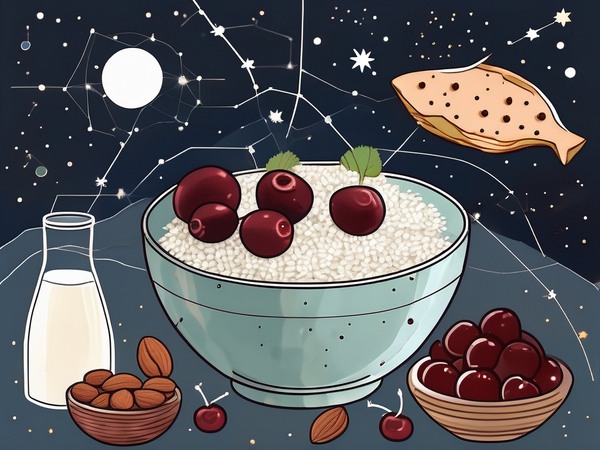
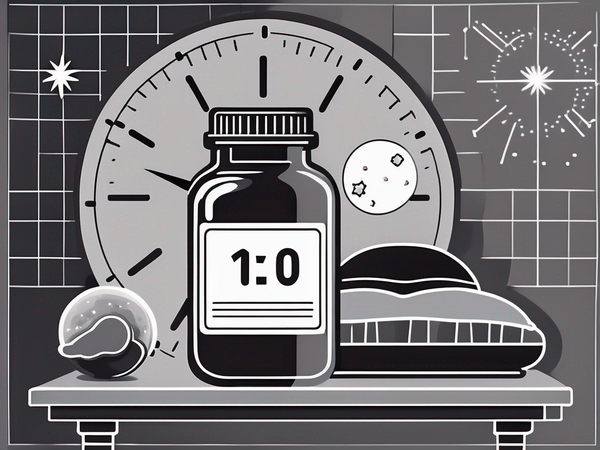
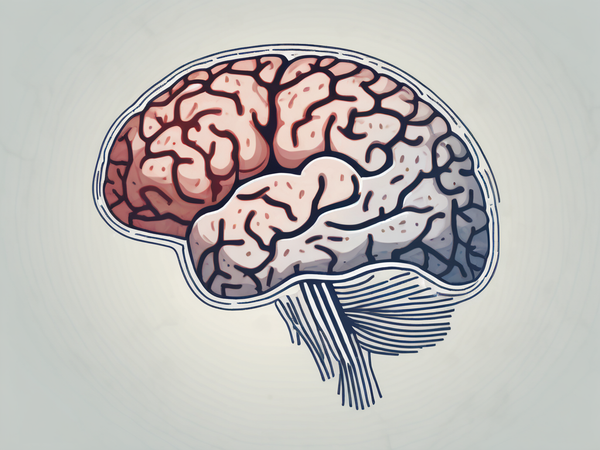






 DOWNLOAD NOW
DOWNLOAD NOW
